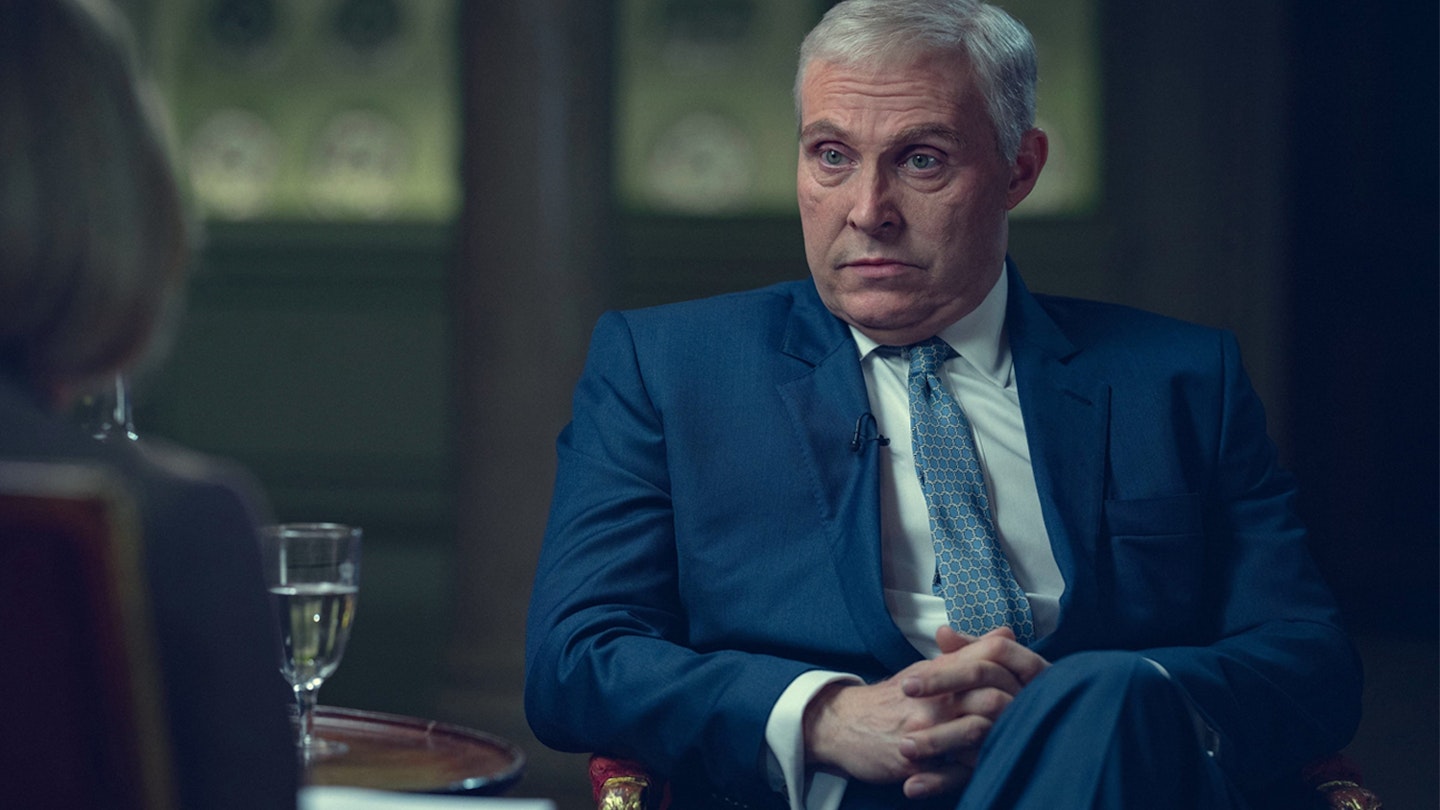“An hour of television can change everything,” says one character in Scoop. Well, Prince Andrew’s hour-long interview with Newsnight’s Emily Maitlis in 2019 certainly changed things for the long-suffering staff of the Woking branch of Pizza Express. That landmark moment in television news — in which the Queen’s son addressed his friendship with convicted paedophile and human trafficker Jeffrey Epstein, directly leading to his retirement from royal duties — is dramatised for this new Netflix film, which at first glance acts as a kind of unofficial The Crown: Season 7. People clearly love royal cosplay, the thinking seems to go — why not recreate the British royal family’s most humiliating recent episode?

Focus will inevitably turn to the big, flashy impersonations of the two key players, and Rufus Sewell is undeniably superb as the sweatless, gormless Andrew, unrecognisable under prosthetics. Portrayed here, he is less ‘playboy Prince’, more pathetic little boy caught in the snare of arrested development, who blurts out bizarre sentences like, “Mummy combed my hair,” or “Trousers!” Andrew, who has strenuously denied all charges of wrongdoing, is depicted here as totally unequipped to meet the seriousness of the moment. It is fairly devastating.
Gillian Anderson as Emily Maitlis is perhaps less successful: there is a clear physical resemblance, and she nails the hawk-eye steeliness of her journalistic gaze, the way she holds a pen as if it were a sword. But her voice feels too husky, closer to her take on Margaret Thatcher in The Crown. It feels, at times, more caricature than character.
It feels rather lacking a point of view.
Unexpectedly, though, the emphasis is not really on the prince or the presenter. Instead, it is on Sam McAlister, the Newsnight producer and guest booker (the screenplay by Peter Moffat and Geoff Bussetil adapts her book) who secured the gig, played here with grit and gusto by Billie Piper. She is a force of nature, on a one-woman mission, and there’s a clear sense that director Philip Martin is trying to summon the crusading spirit of great journalism films like All The President’s Men. To some extent, he is successful.
The best scenes in the film come during the extensive preparation before the big day (“How difficult can it be talking to the Queen’s son about a convicted paedophile?” Maitlis deadpans). Each side, the palace and the BBC, war-games the interview, trying to anticipate the other, Martin cannily cross-cutting between the two separate bunkers. Moffat and Bussetil’s script notes with some insight that it was three women — Maitlis, McAlister and Newsnight editor Esme Wren (played here by Romola Garai) — who made it all happen, and there are thoughtful considerations of the gender dynamics at play: in one quiet moment, McAlister gently observes to Maitlis that “men like that hate it when they’re not heard”.
The interview itself, with all of its bonkers, now-infamous moments (“unbecoming”, “a convenient place to stay”, the lack of sweat, the Pizza Express reference), forms the grand centrepiece of the film, and it certainly captures the surreality of it all, producers gawping in disbelief at the sidelines while the royal household seems cheerfully happy about it all. But though it is a technically faithful recreation, it feels rather lacking a point of view. This is a very famous and very recent interview, one which you can watch — in full — on the BBC iPlayer. What is Scoop adding to the table, beyond slightly first-base “journalism is important” themes?
It’s not clear. So much of the narrative, outside of the interview, feels passive, things happening elsewhere: characters watching news break on TV screens and mobile phones. And while the film seems comfortable to play the more ridiculous moments for laughs, it struggles to impart the seriousness of Epstein’s crimes, or the things Andrew has been accused of. (As The Crown did, it also has a slightly over-inflated belief in the importance of the monarchy.) It ultimately feels a bit like the description one of the characters has for Newsnight itself: tough, but never sensational.

